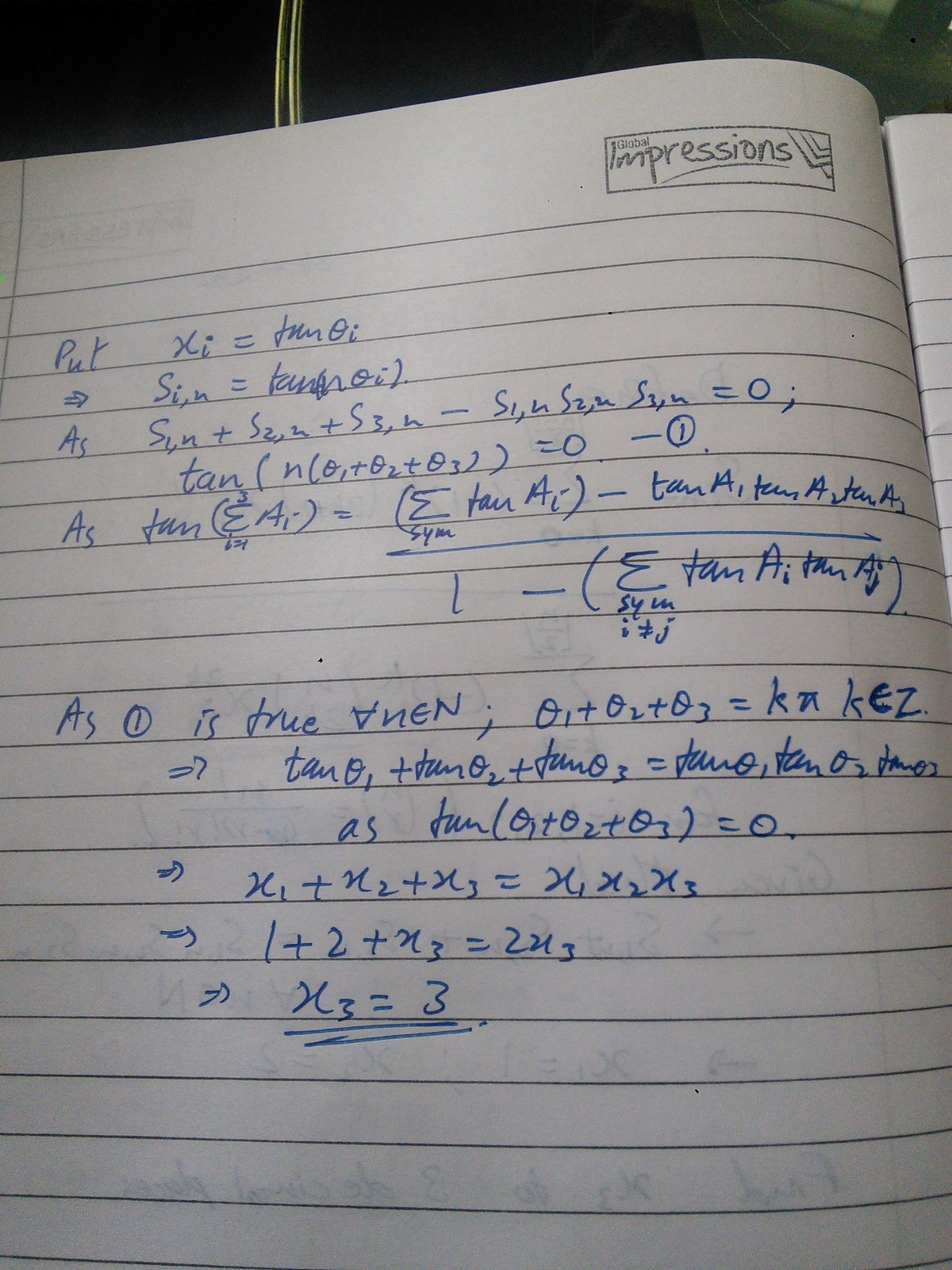Binomial theorem shall not save you!
For i = 1 , 2 , 3 . , define
S ( i , n ) = k = 0 ∑ ⌊ 2 n ⌋ ( − 1 ) k ( 2 k n ) x i 2 k k = 0 ∑ ⌊ 2 n − 1 ⌋ ( − 1 ) k ( 2 k + 1 n ) x i 2 k + 1
If ∀ n ∈ N , S ( 1 , n ) + S ( 2 , n ) + S ( 3 , n ) = S ( 1 , n ) S ( 2 , n ) S ( 3 , n ) , and x 1 = 1 ; x 2 = 2 , find x 3 up to three decimal places
The answer is 3.000.
This section requires Javascript.
You are seeing this because something didn't load right. We suggest you, (a) try
refreshing the page, (b) enabling javascript if it is disabled on your browser and,
finally, (c)
loading the
non-javascript version of this page
. We're sorry about the hassle.
1 solution

Nice solution.Even I solved by the same method.You had named the problem differently few hours ago and that gave me the hint to use trigonometry.
Log in to reply
I realised that and changed the name as otherwise it became too obvious to use the tan ( ∑ i = 0 k ( A k ) ) formula.